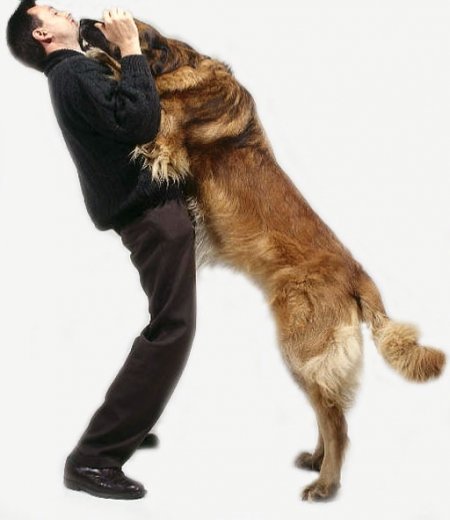
Dear Dr. Hurd,
We enjoyed your recent column about Dog Whisperer Cesar Millan’s approach to canine (and people) psychology. [National Geographic Channel]
My wife and I were invited to a party at the home of a very nice couple we know. The event was totally marred by their dog.
It’s a large breed, and would not stop jumping up on people, harassing everyone for their food and drink, and going from person to person demanding attention. He even knocked two glasses of wine off the coffee table. His owners barely noticed.
After watching Dog Whisperer, it was so obvious how the dog’s owners were treating it as their “child,” unwittingly rewarding the very behavior that was ruining their party.
We really like this couple. Should we say something? How can we turn them down when they invite us again?
We adore dogs, but they’ve created a monster out of this one.
Dr. Hurd replies:
They say dogs are like children. Ill-advised or not, your friends’ dog is obviously their child. Would you offer them unsolicited advice on how to raise their child? Not a good idea. The same applies to the dog.
Cesar Millan would certainly grasp the nature of the problem. But it’s their problem, not yours, and it doesn’t even sound like they consider it a problem.
You’re not obligated to be around their dog. When they invite you to their house, simply turn them down. Suggest they come to your house, or that you go out, or to a movie or whatever. It’s OK to do this! They might not even notice or care.
Now here comes the good part: If/when they eventually ask why, simply say, “Do you want an honest answer?” Let them say yes, and then tell them, “It’s your dog. He’s adorable, but he jumps all over us and makes us uncomfortable.”
Yes, you could lose the friendship over this. But you’ll probably lose it anyway if you offer a lousy excuse or an outright lie. And even if you get away with lying, do you want a friendship based on lies?
Perhaps, on further reflection, you’ll decide you can put up with the dog, at least sometimes. If the friendship means more than the inconvenience of a poorly behaved dog, then proceed accordingly. It’s possible that giving yourself the choice to see them without the dog present will dilute your annoyance.
At least the dog isn’t dangerous. I once had neighbors whose dog threatened to bite people, and actually bit a mutual neighbor right in front of all of us. They laughed it off and denied it was anything significant. I had no problem telling them I wasn’t comfortable being near their dog. They didn’t like it, but they responded as I wanted.
Telling people how to raise their kids, their pets, or whom to love or marry are two of the worst things to give advice about—especially when that advice is uninvited. At the same time, this doesn’t mean you can’t be honest once they ask.
Believe it or not, people sometimes appreciate the truth. If they ask for it and they take it well, then you’ll have created a newfound respect and trust you’re unlikely to enjoy with most friends.
The question isn’t “how” to turn them down, as much as your being OK with turning them down. And when the subject finally arises, the issue then becomes telling them the truth.
